Japanese書籍
知識論 情報クラウド時代の”知る”という営み【越境ブックレットシリーズ第1巻】
越境ブックレットシリーズの第1巻として山田肖子教授による書籍『知識論 情報クラウド時代の”知る”という営み』が刊行されました。
インターネットの普及により情報があふれる現代において、無批判に受け取る情報と個人の価値判断により再構成された知識を区別し、本書では知識の生成を学問分野、国を越えて再考し、知るという営みを捉え直していきます。
カテゴリの概要説明文が入ります。カテゴリの概要説明文が入ります。カテゴリの概要説明文が入ります。
SKY[Skills and Knowledge for Youth] ホーム Survey on Skills Development in Ethiopian Garment Production Sector
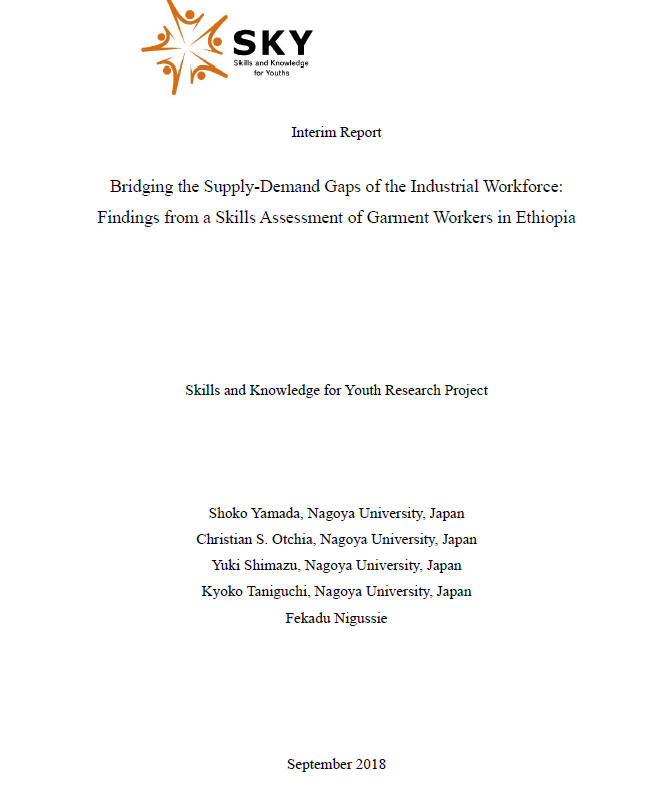
論文English
In this paper, to measure the perception gaps between the supply and demand side of worker skills, an assessment in which assessors from the employer side and the TVET trainer side concurrently graded the garment manufacturing vocational skills of the same workers was conducted. The findings show that there are several layers of mismatch not only between TVET and employers but also between TVET trainers and students. The report also points out that noncognitive or “soft” skills are as important as production skills and it was revealed that TVET graduates demonstrate higher levels of noncognitive skills than do workers trained only in the factories.
-1.jpg)
論文English
The Ethiopian economy has grown significantly and the government has prioritized industrial skills development and expanded technical and vocational education and training (TVET). However, mismatches between the skills availableand the skills required are widespread and the unemployment rate for TVET graduates is high. This paper empirically identify the exact types and domains of skills in which the supply–demand mismatches happen in Ethiopia. It also introduces a unique instrument that captures the knowledge and skills of workers in real work environments.
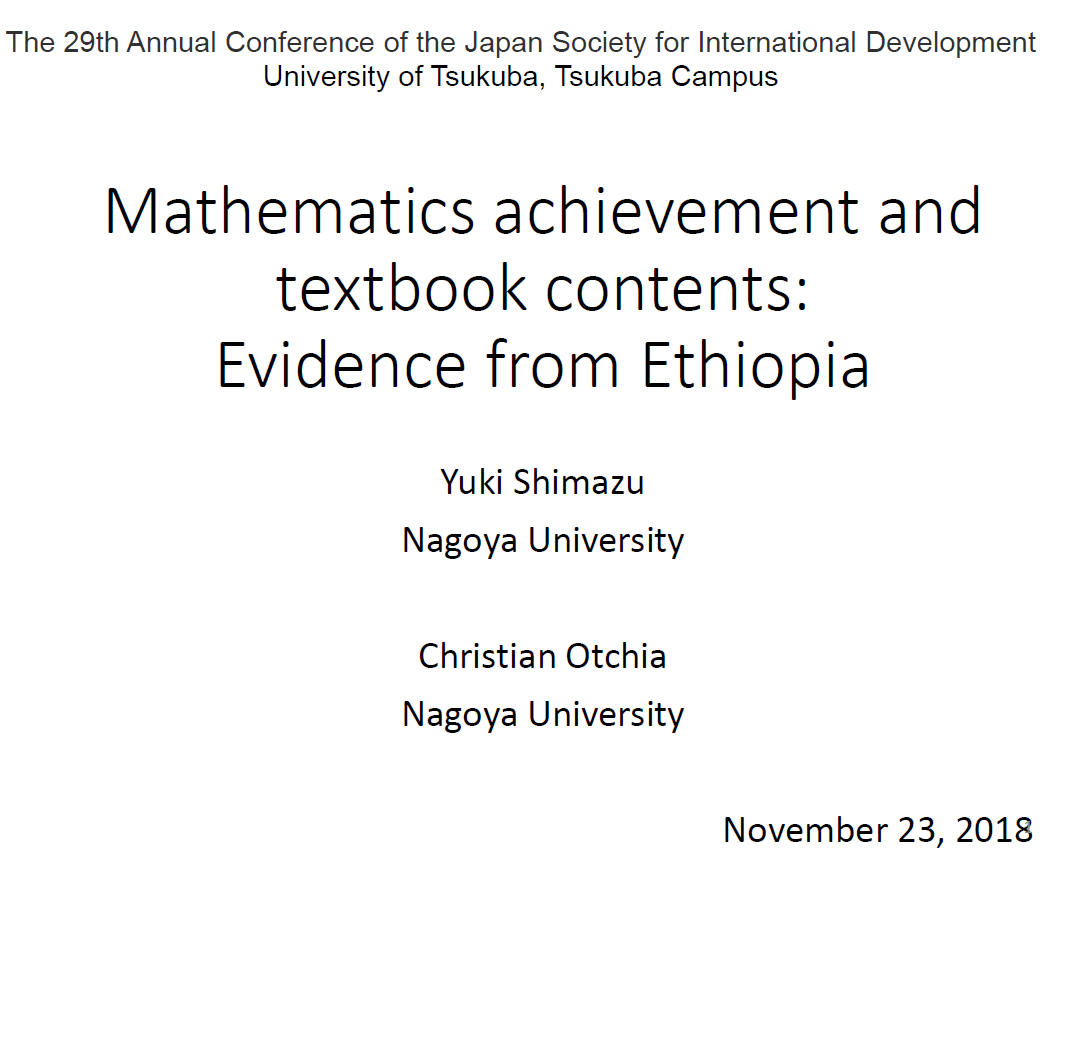
論文English
The report explores the capacity to perform mathematical tasks at the level of primary school curriculum by using data of students randomly selected in Addis Ababa, Ethiopiain March 2018.
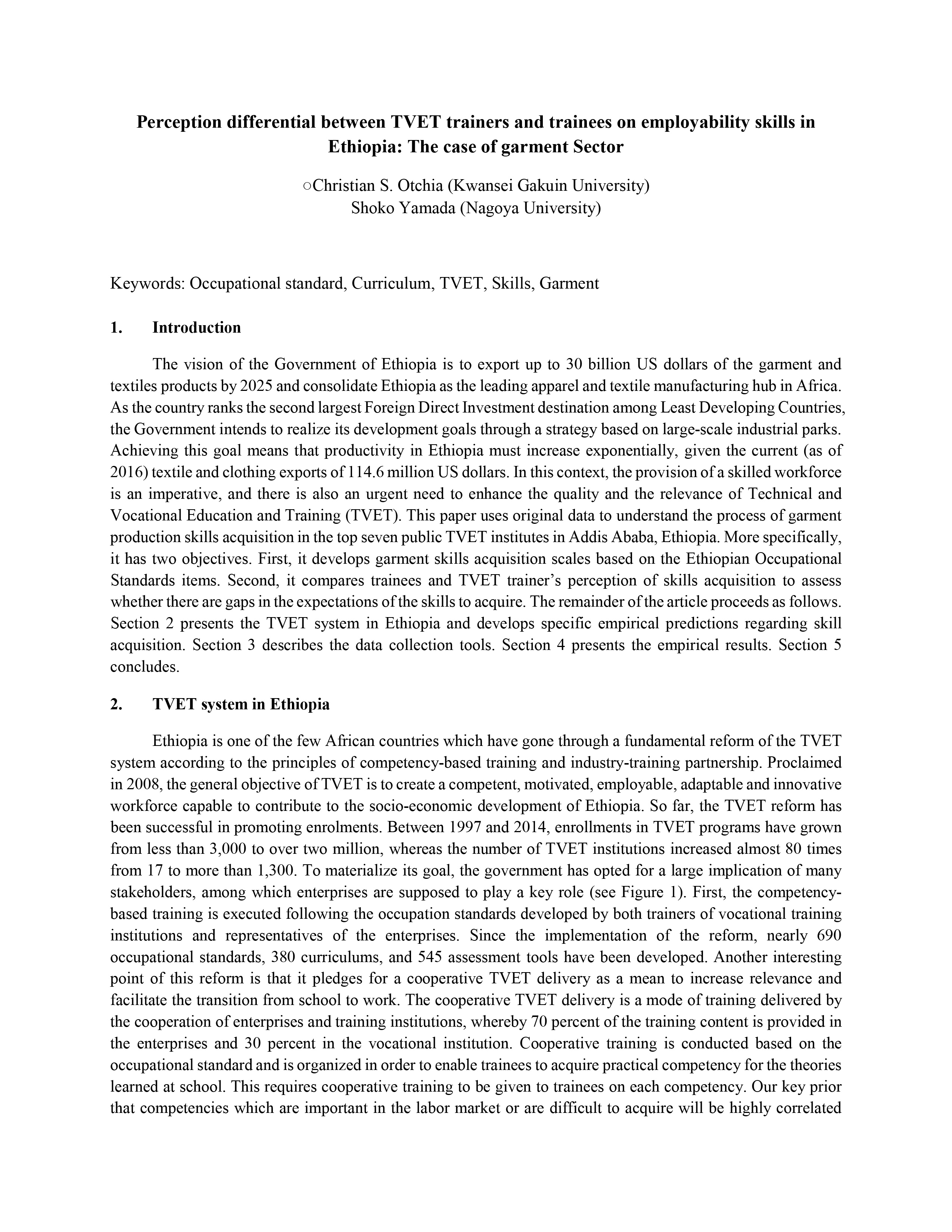
論文English
This paper uses original data to understand the process of garment production skills acquisition in the top seven public TVET institutes in Addis Ababa, Ethiopia. More specifically, it has two objectives. First, it develops garment skills acquisition scales based on the Ethiopian Occupational Standards items. Second, it compares trainees and TVET trainer’s perception of skills acquisition to assess whether there are gaps in the expectations of the skills to acquire.
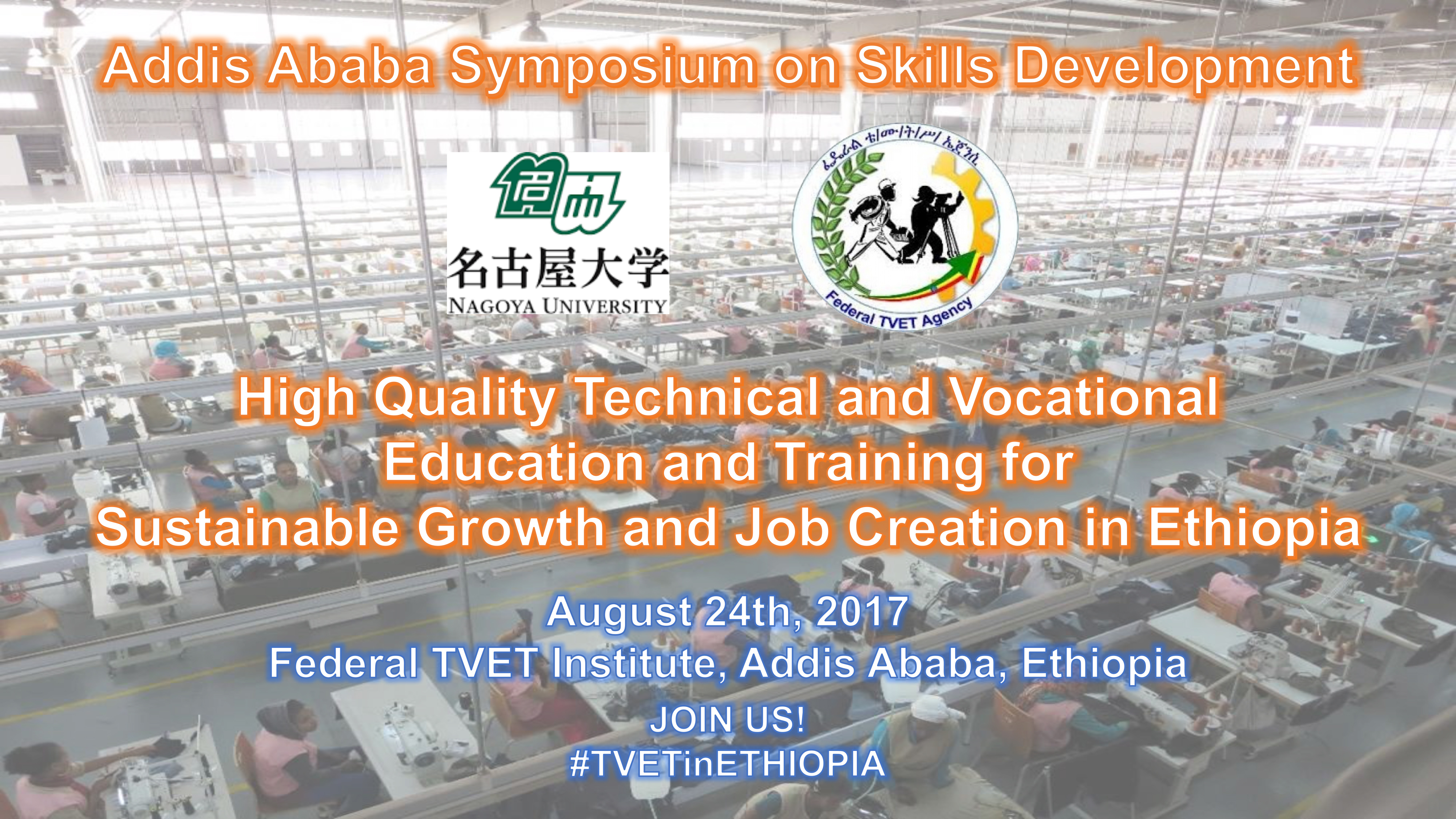
論文English
"Program of the Addis Ababa Symposium on Skills Development
“High Quality Technical and Vocational Education and Training for Sustainable Growth and Job Creation in Ethiopia” 2017."
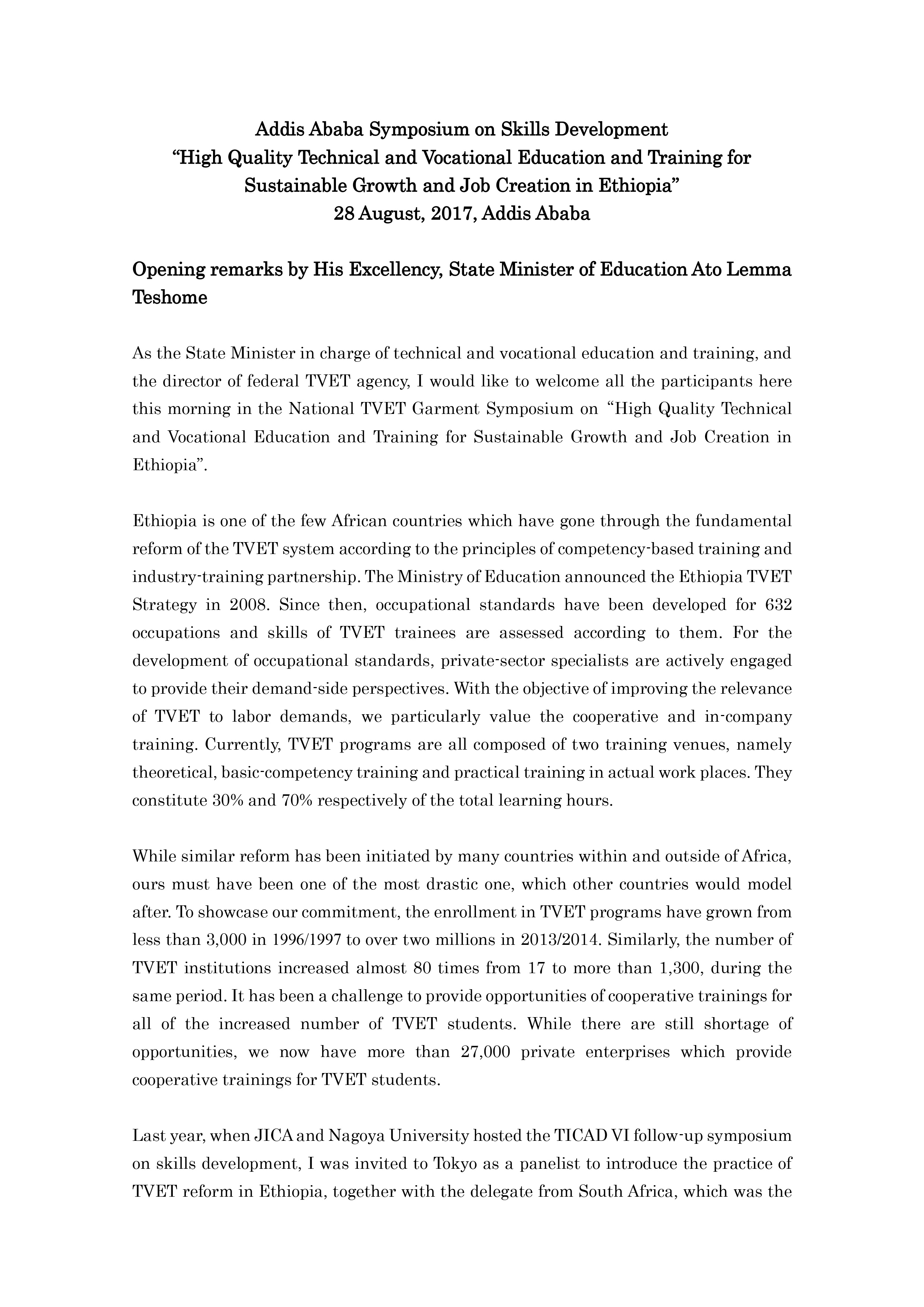
論文English
Opening remarks by by the Minister of Education, H.E.Dr. Shiferaw Teklemariam and State Minister, H.E. Ato Teshome.
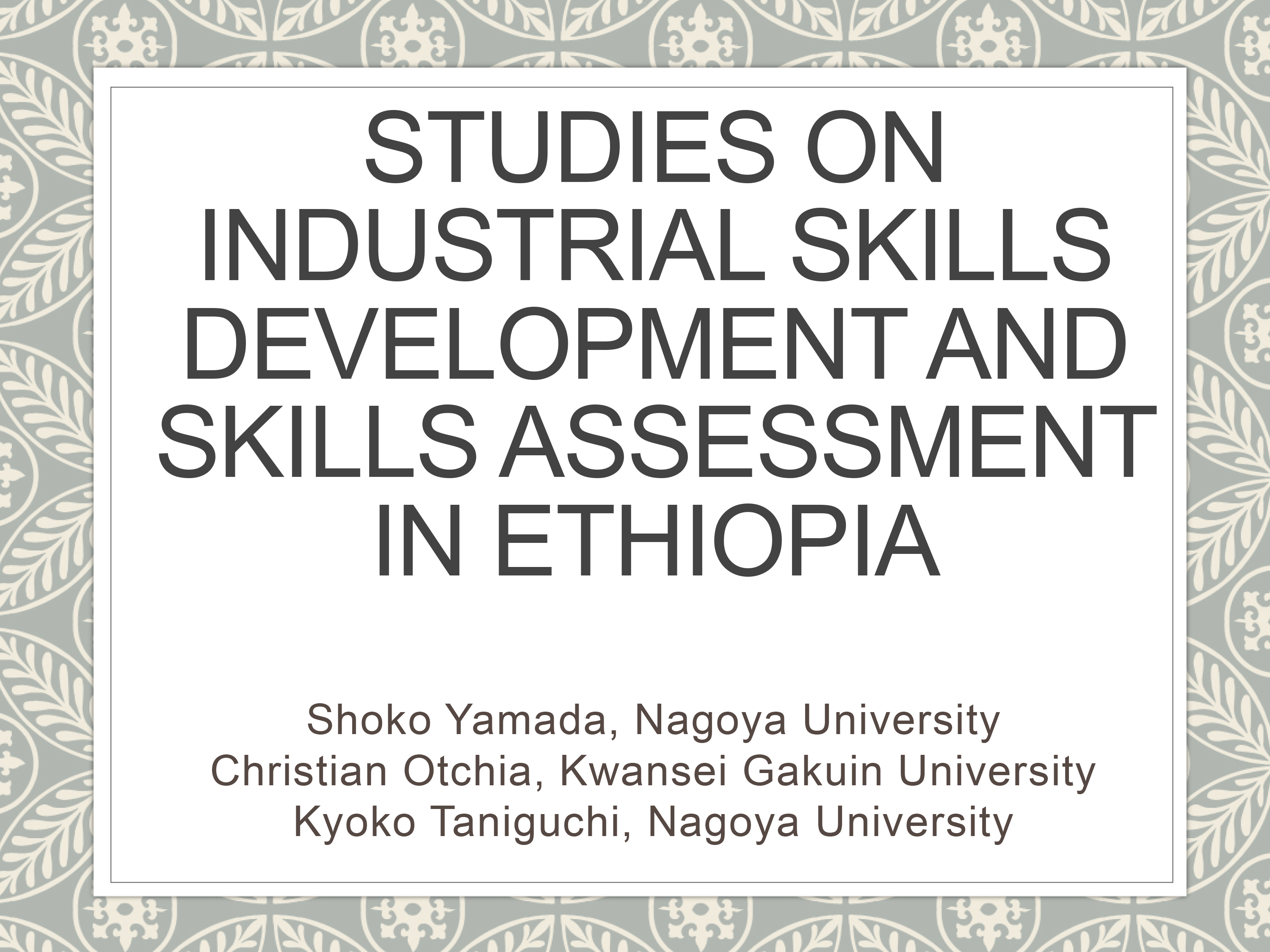
論文English
This presentation gives an overview of issues on human resource development in Africa and introduces the design of the research. It provides the findings of the mismatch between industry and training as well as that of between TVET trainers and trainees.